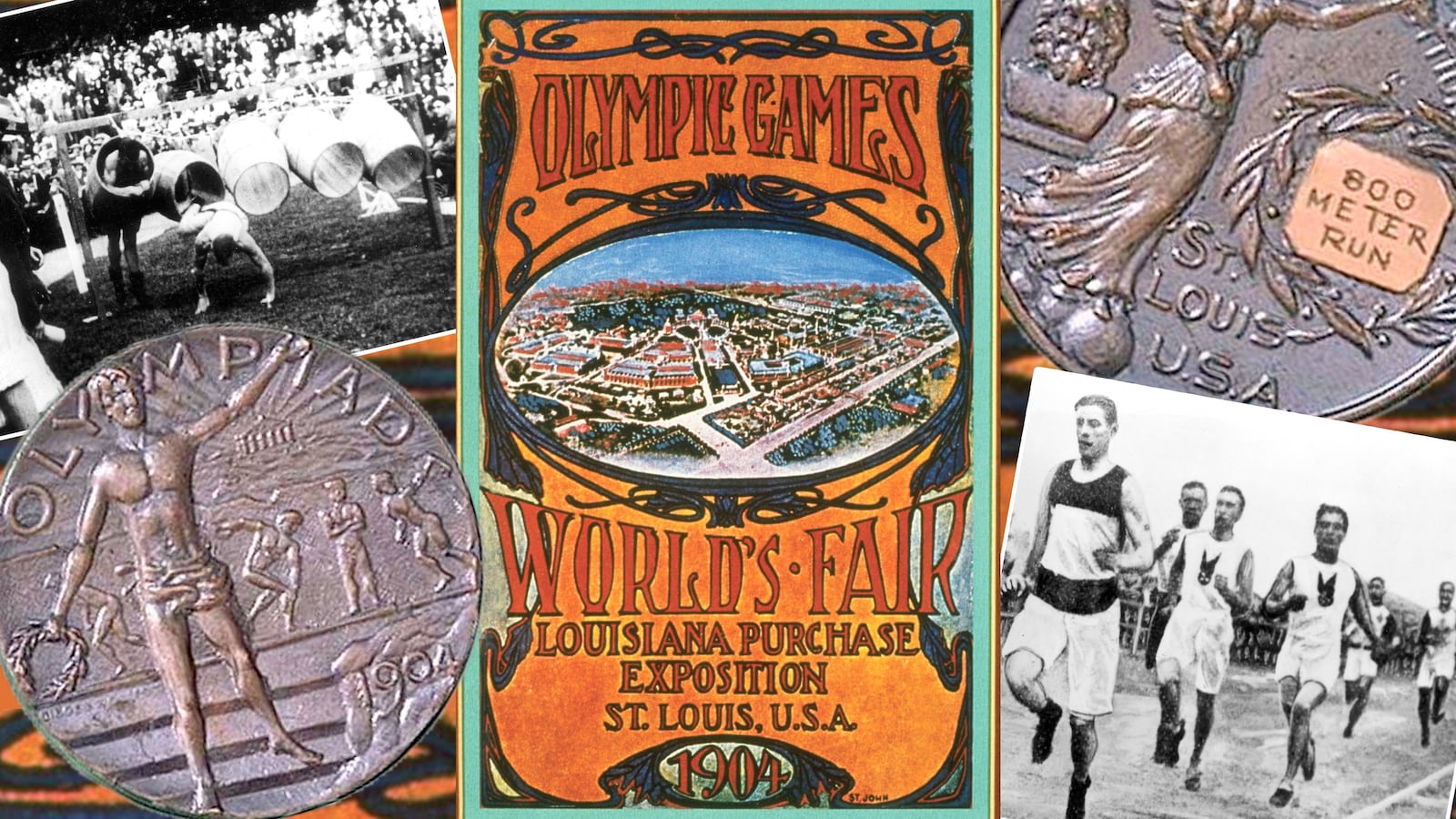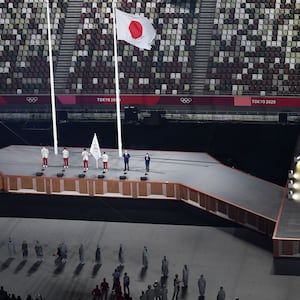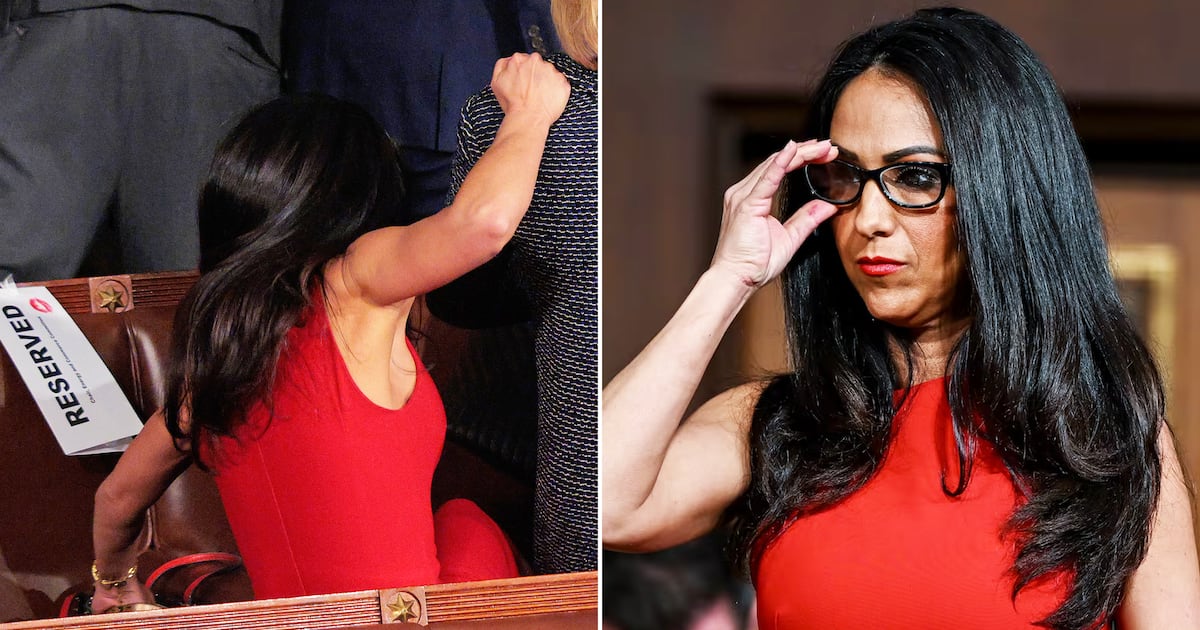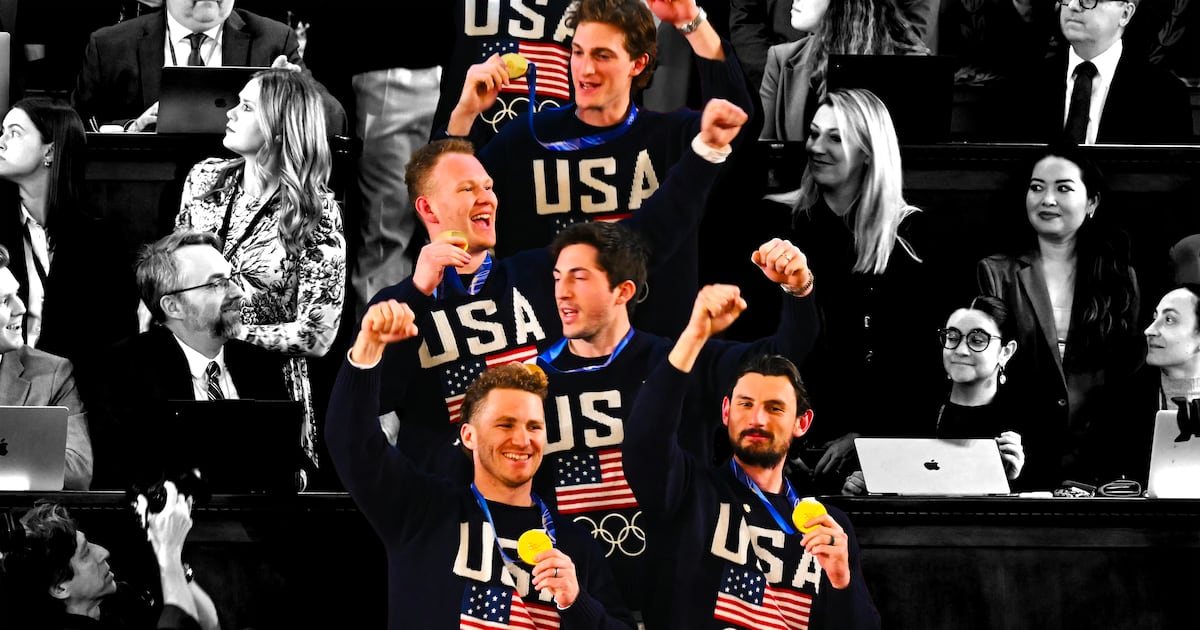As the Tokyo 2020 (or 2021) Summer Games finally get underway, it often seems like they have faced challenges unlike any other Olympics before. After the COVID pandemic steamrolled onto the global scene, Tokyo and the International Olympic Committee (IOC) agreed to delay a year. As the July 2021 opening ceremonies drew near, new scandals arose: Japan announced there would be no spectators, Olympic athletes began to test positive for COVID, and the organizers were faced with one gaffe or scandal after another.
While this is the first time the Olympics have been held in the midst of a global pandemic, the Games are no stranger to controversy. Since the modern Olympics were first revived in 1896, there has been one dust-up after another of a political, financial, or athletic nature.
The honor of ushering in this long history of scandal goes to the first Games ever held in the U.S.: the 1904 Summer Olympics in St. Louis. The Gateway to the West set the tenor for controversy from the start. See, St. Louis wasn’t actually awarded hosting duties for that year’s Games—they stole it. The resulting Olympics had fewer athletes, stretched over an impossibly long period of time, and were largely a hot mess. In the end, they earned an award of their own: the worst—and possibly craziest—in Olympic history.
The Olympics were a brand new global event at the turn of the century. The brainchild of Frenchman Baron Pierre de Coubertin, who had become obsessed with the ancient games, the first ever modern Olympics was held in 1896 in Athens.
During the time that the Olympics were beginning to find their footing, World’s Fairs were all the rage, having gained in popularity ever since London hosted the first exhibition in 1851. Cities had discovered the immense benefits of hosting a global audience of visitors to show off their innovations and attractions, and everyone wanted one.
At the time, St. Louis was trying to make a name for itself as an important player in the American Midwest, so it was thrilled when its proposal was accepted to host a World’s Fair in 1903 to honor the centennial of the Louisiana Purchase Treaty.
The city had big plans for their first World’s Fair, which was known as the Louisiana Purchase Exposition. But this grand vision backfired. As the opening date drew nearer, the organizing committee, helmed by David R. Francis who was both the former governor of Missouri and former mayor of St. Louis, realized that they needed a little more time to get things just right. So, they asked Congress to authorize an extension.
On May 2, 1902, Francis issued a statement blaming this request on a variety of issues, none of which were the fault of the governing body of the St. Louis World’s Fair, of course. The extra time would be for the benefit of foreign governments, of the fair’s official U.S. architect, and of visitors and “the fact that the general public has for months past considered postponement a foregone conclusion.”
They got their wish. The World’s Fair was officially moved to 1904 (101 years after the signing). But the organizers quickly realized that the extension posed a new problem.
Chicago was St. Louis’ biggest rival. The Windy City had become the celebrated destination in the American Midwest ever since it hosted its own blockbuster World’s Fair—the Columbian Exposition of 1893. But competing for events wasn’t the only thing dividing the two cities.
“Chicago in 1900 had just reversed… the Chicago river, so we were sending all of our sewage down to St. Louis,” historian Rose Economou told WBEZ Chicago in 2004. “So there was a lawsuit in the Supreme Court. St. Louis already hated us for that, and so it just seemed very gloomy around the fall of 1902.”
Courbertin had attended the 1893 Exposition, and when he decided the U.S. should host the third modern Olympic Games, he looked to Chicago, which was enthusiastic about taking on the responsibility.
According to Jody Sowell, the Missouri History Museum’s director of exhibitions and research, Chicago was not shy about lording the win over its rival to the south. “They said ‘Well, St. Louis wanted the Olympic Games. They wouldn’t have known what to do with them if they got them,’” Sowell told local St. Louis outlet, 5 on Your Side, in 2018.
With the World’s Fair postponement, the St. Louis organizers realized that they would be competing for visitors that year with a city that was more well known and easier to get to. They had to do something to avert this potential disaster for their fair. They would steal the Olympics away from Chicago.
Francis set about the shady business of securing the Olympics. First, he announced that, despite the Olympics being held in the same year and the same country, the World’s Fair would also host athletic events. Then, he sent emissaries to the Amateur Athletic Union, and convinced them to agree to host a competition during the World’s Fair.
It would not only be a direct rival to the Olympics, but it would also mean that athletes associated with the AAU would only be able to compete in St. Louis. His plan worked. The authorities realized it didn’t make sense to have two major events in two different cities in the same year.
On Feb. 12, 1903, The New York Times reported that cables had been sent out. “Everything settled. You have the Olympic Games,” World’s Fair Commissioner Michel La Grave wrote to the St. Louis organizers.
Economou says the Chicago reception of the telegram announcing the relocation of the Games was “heartbreaking. A lot of people on the committee had a hard time accepting it.”
St. Louis may have been better off for the move, but the Olympics were not.
In 1904, only 12 countries sent athletes to the Games, compared with 28 four years earlier in Paris. There were only 630 athletes (compared to Paris’ 997), an overwhelming majority of which were Americans. Given those stats, it is astounding that the Games stretched over nearly five months, though this length was not as uncommon for the time (the 1908 Olympics would last even longer).
It wasn’t a total loss as there were several important firsts at the Games. It was the first time the sport of boxing was included, and the first time an African American athlete won a medal (George Coleman Poage, with bronze in both the 220-yard and 440-yard hurdles).
It was also the first time that gold, silver, and bronze medals were awarded at the Olympics. And there were other amazing feats of athletic prowess like George Louis Eyser, who won six gymnastics medals with a wooden leg. Also, tug-of-war was an official event (‘nough said).
But the Games were also a perplexing mess as they were entirely conjoined with the World’s Fair. There were athletic events scheduled for the fair—like amateur competitions—that were labeled by organizers as part the “Olympics.”
The worst of the crossovers is what became known as the Anthropology Days, a thoroughly racist event that took place over two days in in which the indigenous people who had been forced onto display in exhibits at the Fair were then forced to participate in Olympic-style events without being told how to play the European games or what the rules were. While the spectacle didn’t have many viewers, it will go down in history as a major blight on the 1904 St. Louis events.
Another athletic spectacle that year was the Olympic marathon. The conditions for the marathon were horrendous. It was over 90 degrees when the race began at 3:03 p.m. on Aug. 30, and the path extended along a road filled with dust. Making matters worse, organizers limited the water available to the runners because “the chief organizer of the Games wanted to minimize fluid intake to test the limits and effects of purposeful dehydration, a common area of research at the time,” according to Smithsonian Magazine.
Thirty-two men started the race; only 14 finished. One man almost died from a stomach hemorrhage. Fred Lorz, who had maintained the first lead, caught a ride in a car for 11 miles, then emerged at the end and was almost declared the winner before his “short cut” was discovered.
The gold medal would eventually be awarded to Thomas Hicks, whose team buoyed him along when he began to flag by feeding him strychnine, egg whites, and brandy. His winning time was a whopping three hours, 28 minutes, and 53 seconds. (The 1900 Paris winner had finished almost 30 minutes quicker.)
“Never in my life have I run such a tough course. The terrific hills simply tear a man to pieces,” Hicks said at the finish line.
The marathon was the crowning outrageous achievement in a serious of failures at the 1904 St Lous Olympics.
Despite putting in another bid for the 2016 Summer Games, Chicago has still never hosted the Olympics.
For his part, Coubertin may have grudgingly allowed St. Louis to steal the 1904 Olympics, but he never forgave them. He refused to attend that year’s Games and got his final dig in at the city in his 1931 memoir. He wrote, “I had a sort of presentiment that the Olympiad would match the mediocrity of the town.”







